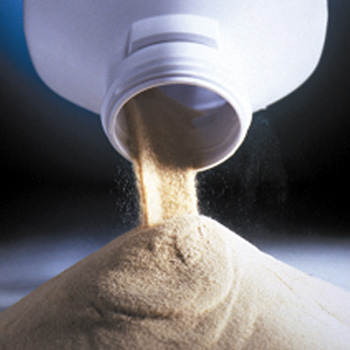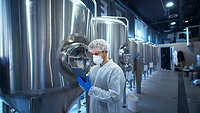Remel-Oxoid Merger Creates Global Industry Powerhouse

According to a recent industry report, in 2003 the worldwide industrial microbiology market generated more than 1.1 billion tests and had a market value in excess of $3.2 billion. The report projects that worldwide microbiology testing in this area will continue to grow over the next five years and will reach 1.5 billion tests in 2008 with a market value of more than $4.9 billion.
The increasing global demand for internationally recognized testing methods is leading many larger microbiology testing companies to join forces, creating major international organizations that can meet the food safety needs of processors with facilities and clients around the world. The most recent high-profile merger occurred on Dec.1, 2004, when two major players in the food testing industry, Remel Inc. and Oxoid Ltd., were combined into one high-quality company, creating a global microbiological testing powerhouse.
“This merger brings together two companies that are both leaders in the microbiology field,” says Jeff Papi, vice president of sales and marketing for Remel. “Our product offerings complement one another and are now available from Remel as a single order point in the U.S.”
Remel Inc. (www.remel.com), a global provider of a wide range of high quality Microbiology products used by clinical, industrial, research, and academic laboratories, and Oxoid Ltd. (www.oxoid.com), the UK-based leading manufacturer and distributor of microbiological culture media and other diagnostic products, are owned by Fisher Scientific International Inc., a leading provider of products and services to the scientific community. The expanded Remel industrial business will be located at Remel’s corporate office in Lenexa, KS, where all order entry, customer service and technical service functions for both product portfolios will be centralized.
Remel’s combined product portfolio of more than 6,000 products can be used by any laboratory performing microbiology quality assurance testing in the food and beverage, pharmaceutical, biotech, environmental, academic and research markets. The Oxoid range of products is used in clinical and industrial laboratories to isolate and identify the bacteria or other organisms causing disease or spoilage and is supported by a network of wholly owned sales and distribution companies in Europe, North and South America and Australia.
Testing Without Borders
While both companies have a strong international authority and recognition as microbiology experts, Remel is a leader in the U.S. while Oxoid has a greater presence in the European Union and Canada. “The trans-atlantic ‘marriage’ of Oxoid and Remel is good news for all of our food microbiology customers worldwide,” says Patrick Roberts, vice president sales and marketing at Oxoid. “With unique and complementary products, and our strengths in manufacturing, marketing and distribution in differing geographical regions, customers now find that they have access to a broader range of products than ever before. With one single point of contact, via their Oxoid or Remel representative, product selection and ordering will also be simpler.”
The merger allows food microbiology customers around the world to gain access to products that were once unique to Remel or Oxoid. It is the combination of their geographic strengths and the blending of distinct product lines that makes the merger appealing, both for food science researchers and major food processing companies, says Purnendu C. Vasavada, Ph.D., professor of food science at the University of Wisconsin-River Falls and a food safety microbiology specialist, who notes that both Remel and Oxoid have been very supportive of academic research. “By merging, they provide more opportunities for food industry professionals to access diagnostic products in one place,” Vasavada says. “It will enable processors with clients all over the world to implement unified testing policies and protocols that will be interchangeable across borders.”
That interchangeability will streamline testing processes, eliminate market barriers and end arguments among satellite operations over whose testing tools are more appropriate to meet internal food safety requirements, according to Papi. “The resources and experience between the two companies enables us to bring more to market to meet previously unmet customer needs.”
Because the Oxoid and Remel products will now be available wherever they have a presence, it becomes easier for global clients, such as Kraft Foods, to make choices that meet the needs of every facility. “The merger will simplify operations for us because we will be able to buy the products from either company in one place,” says Mark Carter, section manager for microbiology and food safety at Kraft Foods North America. “That is a benefit to Kraft operations, and the industry in general.”
The increased global presence may also bolster the company’s research and development of new products that might not have previously been of interest, Vasavada predicts. “When you have one company serving a global consumer base, they have greater needs,” he says. “The new company will have to accommodate those needs. It may make them more innovative, and that will benefit the food processing industry.”
Papi agrees. “There will absolutely be more research and development as we move forward,” he says. “It’s part of the equation, the synergy that brings these organizations together.”
www.remel.com - www.oxoid.com
Looking for a reprint of this article?
From high-res PDFs to custom plaques, order your copy today!





